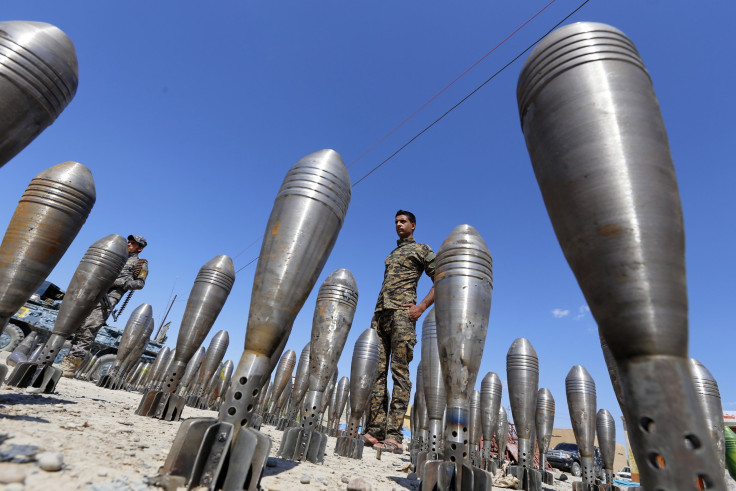Global Arms Spending In 2014 Remains Mostly Unchanged Despite Cutbacks By US, Western Europe: Report

Countries across Asia, Middle East, Eastern Europe and Africa stepped in to compensate for a reduction in America's defense expenditure to keep global military spending mostly unchanged in 2014, according to the Stockholm International Peace Research Institute (SIPRI), an arms watchdog.
SIPRI said in a report on Monday that worldwide military expenditure totaled $1.8 billion in 2014, a fall of 0.4 percent compared to the previous year. While the U.S. cut back on military spending by 6.5 percent as part of broader measures to reduce the country’s budget deficit, China, Russia and Saudi Arabia significantly increased their arms purchases, with Riyadh boosting its military spending by 17 percent, the largest increase of any of the top 15 spenders worldwide in the last year.
“While total world military spending is mostly unchanged, some regions, such as the Middle East and much of Africa, are continuing to see rapid build-ups that are placing an increasingly high burden on many economies,” Sam Perlo-Freeman, head of SIPRI’s military expenditure project, said in a statement. “These increases partly reflect worsening security situations, but in many cases they are also the product of corruption, vested interests and autocratic governance.”
According to SIPRI, the conflict in eastern Ukraine has prompted many European countries near Russia -- particularly in central Europe, the Baltics and Scandinavia -- to increase military spending. On the other hand, the five biggest spenders in Western Europe -- France, the U.K., Germany, Italy and Spain -- have all budgeted for further cuts in their arms spending this year, according to the report.
The Norwegian Aftenposten newspaper reported last week that the five Nordic nations -- Sweden, Norway, Finland, Denmark and Iceland -- had agreed on greater military cooperation with the Baltic states, citing threats from Russia as the biggest challenge to European security.
SIPRI has estimated that the crisis in eastern Ukraine had prompted Kiev to increase military spending by more than 20 percent in 2014. While Ukraine plans to more than double its expenditure on its armed forces in 2015, Russia is also planning to increase military spending in 2015.
© Copyright IBTimes 2025. All rights reserved.






















